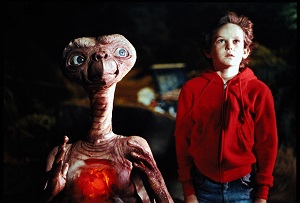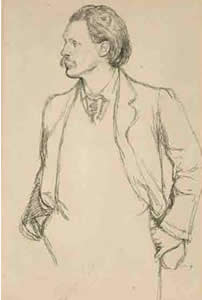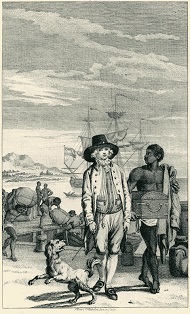De Hongaarse dichter Endre Ady werd geboren op 22 november 1877 in het huidige Adyfalva. Zie ook alle tags voor Endre Ady op dit blog.
On Elijah’s Chariot
The Lord summons Elijah-like
those whom he truly loves and tries.
He gives them racing, fiery hearts,
the flaming chariots of the skies.
Elijah’s tribe rush toward the sky
toward the land of endless snow.
On Himalaya’s frozen peaks
with clattering wheels the chariot go.
They are driven by winds of fate –
outcasts between the earth and sky.
Tempted by evil, chilling charms
the chariots of Elijah fly.
Their brains are ice, their souls are fire;
the earth laughs at them as her prey –
With cold and glinting diamond dust
the sun in pity strews their way.
Life Terrifies Me
Holy ecstasy-swans on great glad Waters
Seize me, but in vain.
I hear the gaggling of sensible ganders,
Nothing can remain,
There is nothing to last.
I hear my future faltering sobs
When I’m still smiling,
And when dark ravens are cawing in my soul
A chirpy starling
Will cheerily chime in.
My longings frighten me. Fulfilment follows
And I’ll feel defiled.
I dread contentment. Behind it storms the steed
Of passion, the Wild.
Oh, life terrifies me.
Endre Ady (22 november 1877 – 27 januari 1919)
De Amerikaanse schrijver William Kotzwinkle werd geboren op 22 november 1943 in Scranton, Pennsylvania. Zie ook alle tags voor William Kotzwinkle op dit blog.
Uit:E.T. The Extra-Terrestrial
« But the communicator was nearly complete.
“Yeah,” said Michael, “but what’s gonna run it? What’s gonna turn this?” He spun the saw blade on the turntable. “If we take it up in the hills there” – he pointed out the window – “there won’t be any electricity.”
The space-being had just completed supper. Torch-fingering his butter knife, he took out the temper, then bent and bolted it to the coat hanger, along with the fork, to form a ratchet device: knife and fork moved in and out of the teeth of the saw blade, advancing it tooth by tooth.
“Yeah,” said Michael, “but we can’t stand out there all night, yanking that thing around.”
The extraterrestrial continued smiling. He understood it all now, those early hints flashed at him from within, of a little fork dancing around a plate.
It was this thing he’d made, and it would work, out in the hills, and no hands, human or otherwise, would be needed to activate it. »
(…)
« She was a goddess, the most beautiful thing he’d ever seen. Her radiant hair, spread out upon the pillow, was the moonlight itself; her fine features, so understated in their loveliness, were all that was perfection in nature. Mary, said his old heart.”

William Kotzwinkle (Scranton, 22 november 1943)
Scene uit de film van Steven Spielberg uit 1982
De Engelse schrijver George Robert Gissing werd geboren op 22 november 1857 in Wakefield, Yorkshire. Zie ook alle tags voor Georg Robert Gissing op dit blog.
Uit: Workers In The Dawn
“If we look up, we perceive that strong beams are fixed across between the fronts of the houses — sure sign of the rottenness which everywhere prevails. Listen! That was the shrill screaming of an infant which came from one of the nearest dens. Yes, children are born here, and men and women die. Let us devoutly hope that the deaths exceed the births.
Now back into the street, for already we have become the observed of a little group of evil-looking fellows gathered round the entrance. Let us press once more through the noisy crowd, and inspect the shops and stalls. Here is exposed for sale an astounding variety of goods. Loudest in their cries, and not the least successful in attracting customers, are the butchers, who, with knife and chopper in hand, stand bellowing in stentorian tones the virtues of their meat; now inviting purchasers with their — “Lovely, love-ly, l-ove-ly! Buy! buy buy buy — buy!” now turning to abuse each other with a foul-mouthed virulence surpassing description. See how the foolish artisan’s wife, whose face bears the evident signs of want and whose limbs shiver under her insufficient rags, lays down a little heap of shillings in return for a lump, half gristle, half bone, of questionable meat-ignorant that with half the money she might buy four times the quantity of far more healthy and sustaining food.
But now we come to luxuries. Here is a stall where lie oysters and whelks, ready stripped of their shells, offering an irresistible temptation to the miserable-looking wretches who stand around, sucking in the vinegared and peppered dainties till their stomachs are appeased, or their pockets empty. Next is a larger booth, where all manner of old linen, torn muslin, stained and faded ribbons, draggled trimming, and the like, is exposed for sale, piled up in foul and clammy heaps, which, as the slippery-tongued rogue, with a yard in his hand turns and tumbles it for the benefit of a circle of squalid and shivering women, sends forth a reek stronger than that from the basket of rotten cabbage on the next stall. How the poor wretches ogle the paltry rags, feverishly turn their money in their hands, discuss with each other in greedy whispers the cheapness or otherwise of the wares! Then we have an immense pile of old iron, which to most would appear wholly useless; but see how now and then a grimy-handed workman stops to rummage among it, and maybe finds something of use to him in his labour.”

George Robert Gissing (22 november 1857 – 28 december 1903)
Lithografie door Sir William Rothenstein, 1897.
De Nederlands dichteres en schrijfster Elisabeth Maria Post werd geboren in Utrecht op 22 november 1755. Zie ook alle tags voor Elisabeth Maria Post op dit blog.
Uit: Reinhart, of natuur en godsdienst
“Nu ben ik onherroepelijk van mijne vrienden gescheiden; het wederkeeren is mij zelfs onmogelijk; geen oogenblik meer, ach geen enkel oogenblik om hen nog maar ééns met een stamelende tong een: ‘vaart eeuwig wel!’ toeteroepen. Neen, dit vaartwel moet ik in mijn hart smooren, en het verliest zich in een benaauwde zucht. O mijn Karel! hoe zal, hoe kan, ik u het plegtige, het verpletterend plegtige, van dien dag van gisteren mededeelen? De langverlangde wind vulde de zeilen, alles juichte; maar mijne ziel kromp in mij weg. Het kraakend geraas van zeilen en touwen, de bulderende kanonschooten, waarmede wij afscheid van de reede naamen, de akelige nagalm dier dreunende schooten, die over het water scheenen te rollen, en zig tot zoo veel afscheidsgroeten in mijne ooren verdubbelden, overmeesterden alle de krachten van mijnen geest. Ach! van dit oogenblik af, heeft het voordsnellend schip niet opgehouden mij geduurig van den woonoord mijner vrienden, van mijn vaderland te verwijderen; alreeds zijn wij door onze lootsen verlaaten, en de tonnen veilig doorgekomen. Met een treurig ledig hart zwerve ik thans op de ruime Noordzee, waar enkel water en lucht mijn horizon bepaalt; waar ons, mijlen in het rond, geen land omringt. Ik zie nu geen enkel slipjen van mijnen vaderlijken grond meer, en mijn oog is slechts roereloos naar dien hemelstreek toegekeerd daar ik zijn laatsten heuveltop zag ondergaan. Nu is daar niets meer als lucht! – Treurige ledigheid!”

Elisabeth Maria Post (22 november 1755 – 3 juli 1812)
Illustratie uit Reinhart, of natuur en godsdienst
